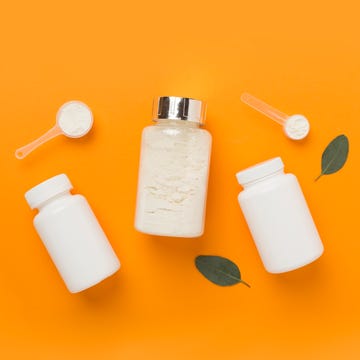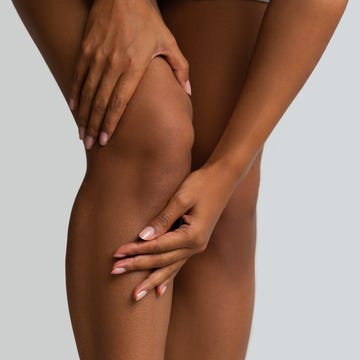Ah, summer. Time spent padding barefoot around the kitchen, preparing cool fruit salads and – argh! Why has a cloud of fruit flies swarmed out of the compost bin and into my face? And, urgh! Why have I stepped backwards and on to a trail of ants?
It’s cool in the kitchen in the summer and cooks aren’t the only ones who seem feel that way. As temperatures rise, yours is likely to be invaded by less-welcome guests, from house flies to wasps. They’re irritating and icky. But are they unhealthy and unhygienic, too? And if so, how can you send them packing?
‘Well, most of them would prefer to be outside,’ says Adam Hart, professor of science communication at the University of Gloucestershire and a Fellow of the Royal Entomological Society (that’s the scientific study of insects, to the flea-brained like me). ‘So, if you can, help them escape. Since it’s quite light outside till late evening in the summer, try turning off the lights inside and opening a window. Most insects will naturally move towards the light.’ Fine. But what else do we need to know?
What to read next
House flies
Why are they suddenly in my kitchen?
Flies go into a dormant state in winter. Their population levels and breeding season peak in August and peter out in October. ‘Your house is just another habitat to them,’ says Hart. ‘They move through it looking for resources. Often that’s food and, in the case of flies, a mate.’ Even if they don’t find romance, they then struggle to find an exit, he explains: ‘Flies, in particular, seem utterly unable to get out again.’
Are they a health and hygiene risk?
‘Most people want to get rid of them because they’re just really annoying,’ says Hart, ‘but potentially, yes.’ While buzzing around outside, flies land on all sorts of surfaces, he explains, including excrement. They don’t wipe their feet on the way in, before landing on your kitchen surfaces and even food that’s been left out. ‘Sure, their feet aren’t that big, but neither are bacteria,’ says Hart. ‘So, there’s clearly a potential to them to spread pathogens around.’
In 2017, researchers discovered that flies carry more diseases than suspected. DNA analysis suggested that, taken together, house flies and blow flies harbour more than 600 different bacteria, some of which are linked with human infections, including stomach bugs, blood poisoning and pneumonia.
How can I send them packing?
Ever hired a villa somewhere hot, then realised there are no flies in the house? ‘That’s because they have fly screens,’ says Hart. ‘We’re not very good at keeping insects out in this country because, historically, our buildings are all about keeping warm in the winter. But when you want the breeze to come in, and the insects to stay out, fly screens make a lot of sense.’
‘Your bins are irresistible to house flies, both indoors and out,’ adds GH’s household advice editor Katie Mortram. ‘Warm, moist and filled with rotting food, it provides the ideal conditions to lay eggs. So, empty your indoor bins regularly (a few times a week in summer) and make sure they’re sealed shut at all times. Move them out of the sun to manage the smell and decomposition rate. You can also rinse tins and containers to remove any food waste before throwing away.’
Wasps
Why are they suddenly in my kitchen?
Summer is also peak wasp season in the UK. As the warm months progress, two things happen. Wasp colonies grow and the queens stop laying eggs. This means worker wasps stop focusing on feeding her larvae and start seeking out sweet, sugary substances for themselves. That could be flower nectar. Or it could be the glass of cola you left on the kitchen island…
Are they a health and hygiene risk?
Obviously, your main fear is being stung. Thankfully while stings are common, anaphylaxis (or severe, potentially life-threatening allergic reaction) is rare. Still, says Hart: ‘You don’t have to be allergic to wasps for their sting to be quite an unpleasant experience. Depending on where they get you, you can end up with painful and uncomfortable swelling.’
So how can I send them packing?
‘If you have a big summer spread – a picnic, a BBQ – don’t leave your platters of food uncovered,’ says Adam. And don’t leave open cans of fizzy drinks lying around either.
‘Wasps are attracted to different types of food depending on the time of year,’ adds Katie. ‘In late summer, they prefer the typical sweeter treats such as sugary drinks and jammy scones, to feed themselves. But, in early summer, they’re feeding their larvae, which are carnivorous and require protein. That means your BBQ meats will be more enticing at this time of year. Bear this in mind when you’re planning what to eat outdoors.’
Fruit flies
Why are they suddenly in my kitchen?
Fruit flies, as the name suggests, are attracted to fruit, the more decaying and fermenting the better. ‘In the summer, when it’s hot we not only have fruit out in the kitchen, but it’s ripening faster, giving out lots of lovely smells and drawing them in,’ says Hart.
Are they a health and hygiene risk?
‘They’re largely just irritating,’ says Hart. ‘They cling to fruit and laying eggs which hatch into larvae, which turn into maggots.’ Eating those eggs by accident is unlikely to cause you problems still ‘no one wants to share their fruit with flies,’ says Hart.
And beyond the irritation? It’s important not to be too neurotic stresses Hart. That said, a 2018 study found that fruit flies can theoretically spread bacteria such as salmonella, E. coli and listeria, which can cause food poisoning.
How can I send them packing?
Make sure your compost bin is covered, and fruit, too, out of temptation’s way for passing fruit flies. Feeling more ruthless? ‘You can put out vinegar traps for them,’ says Hart. ‘A small jar will work, tip a shot of vinegar into the bottom, cover the top with a bit of cling film and punch a few holes in it. They’ll fly in.’
‘When laying a vinegar trap, use apple cider vinegar for the best chance to lure in fruit flies and then add a couple of drops of washing-up liquid to the surface,’ suggests Katie. ‘This reduces the surface tension of the water, so the flies will sink and drown. There are also yellow sticky paper traps which work well for fruit flies.’
Ants
Why are they suddenly in my kitchen?
Warm temperatures and raised humidity in July and August make for ideal conditions for ants to thrive and reproduce. What do all these ants do? ‘They move around looking for food,’ says Hart. ‘And they’ll always find food in the kitchen, right? No matter how scrupulous we are, there’s always going to be a blob of jam somewhere or an open container somewhere.’
Your main antagonist here is the scout ant. ‘They go out and look for food,’ says Hart. ‘Once they’ve found something, they’ll lay a chemical trail back to the nest. Suddenly, half an hour later, there’s a whole line of ants running through your kitchen.’
Are they a health and hygiene risk?
‘They’ll crawl all over everything, into our cupboards and on to surfaces, so obviously it’s not ideal,’ says Hart. ‘Ants are only small but they often have very big colonies. So. you might end up with a great deal of them.’
Most don’t pose a real risk to your health. Though Hart points to an invasive species called Pharaoh ants, which can cause problems in hospitals where they feed on blood, so can spread pathogens such as salmonella, pseudomonas, staphylococcus, streptococcus, klebsiella and clostridium.
How can I send them packing?
Very few ants in the UK actually nest within our homes, says Hart. When you come across them in your kitchen they’re living in the garden but have made foraging trails across thresholds and inside. ‘If you can track down where they’re coming in and just seal it off, even with just a little blob of silicon for example, that’s quite effective,’ says Hart. ‘Otherwise, as much as I hate to say it, commercially available powders are highly effective.’
‘As well as laying traps, it’s a good idea to switch your kitchen cleaner over to a distilled white vinegar solution,’ says Katie. ‘Ants hate the smell of vinegar, so if you clean your kitchen with it, you’re making it less inviting to them. Use one part water to one part vinegar for guidance. This acidic solution is ideal for dissolving stains, shifting limescale as well as deterring ants!’













